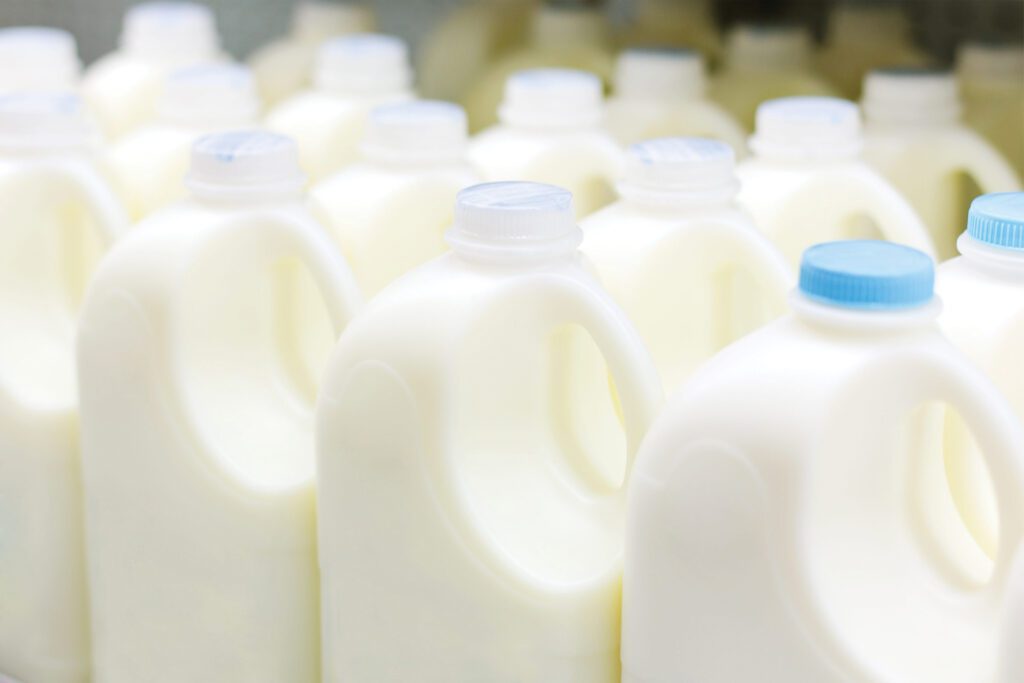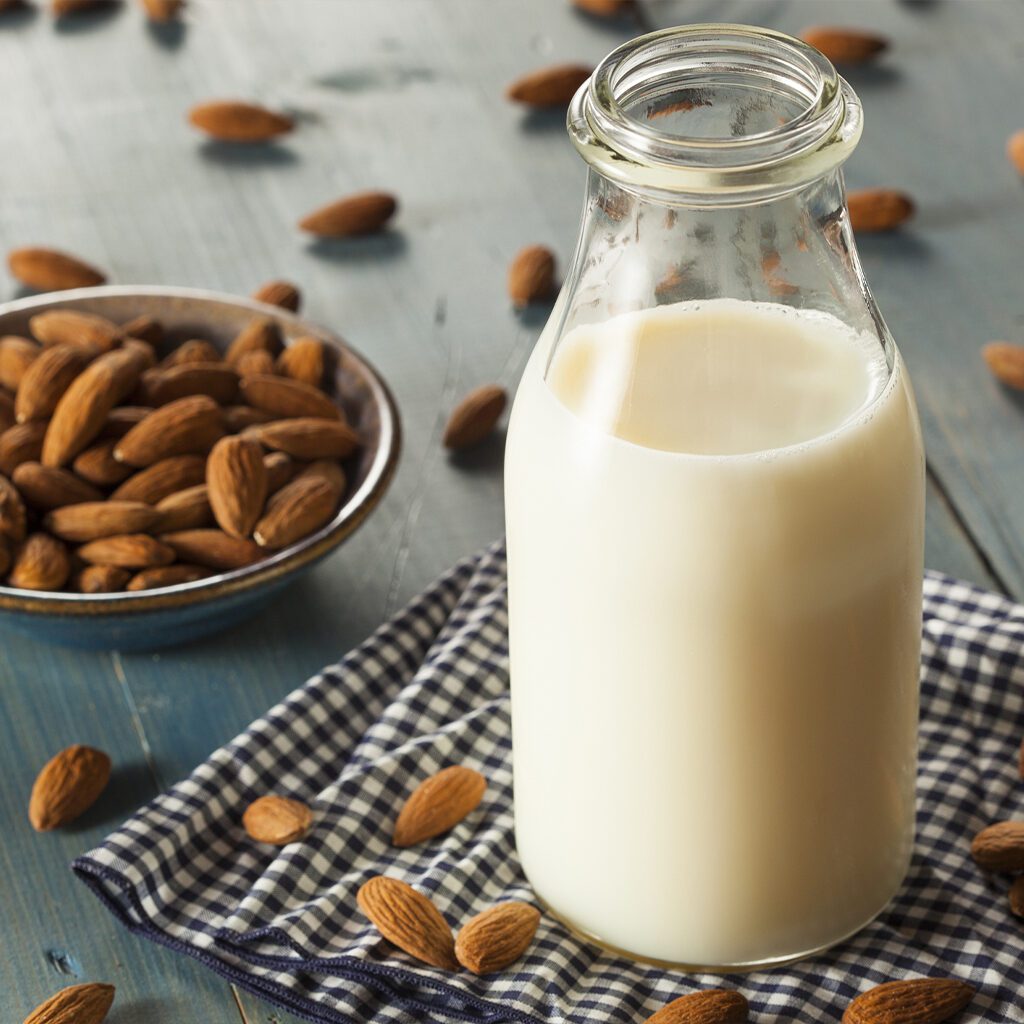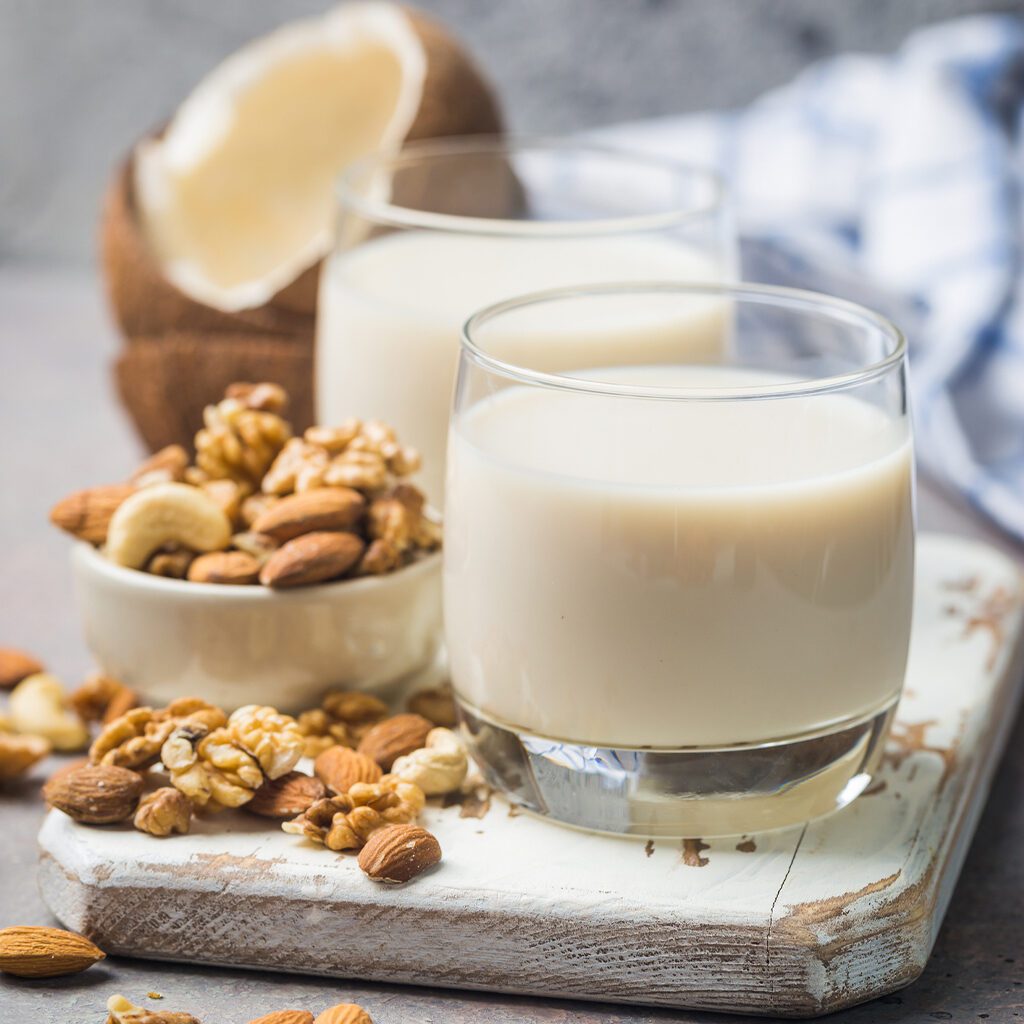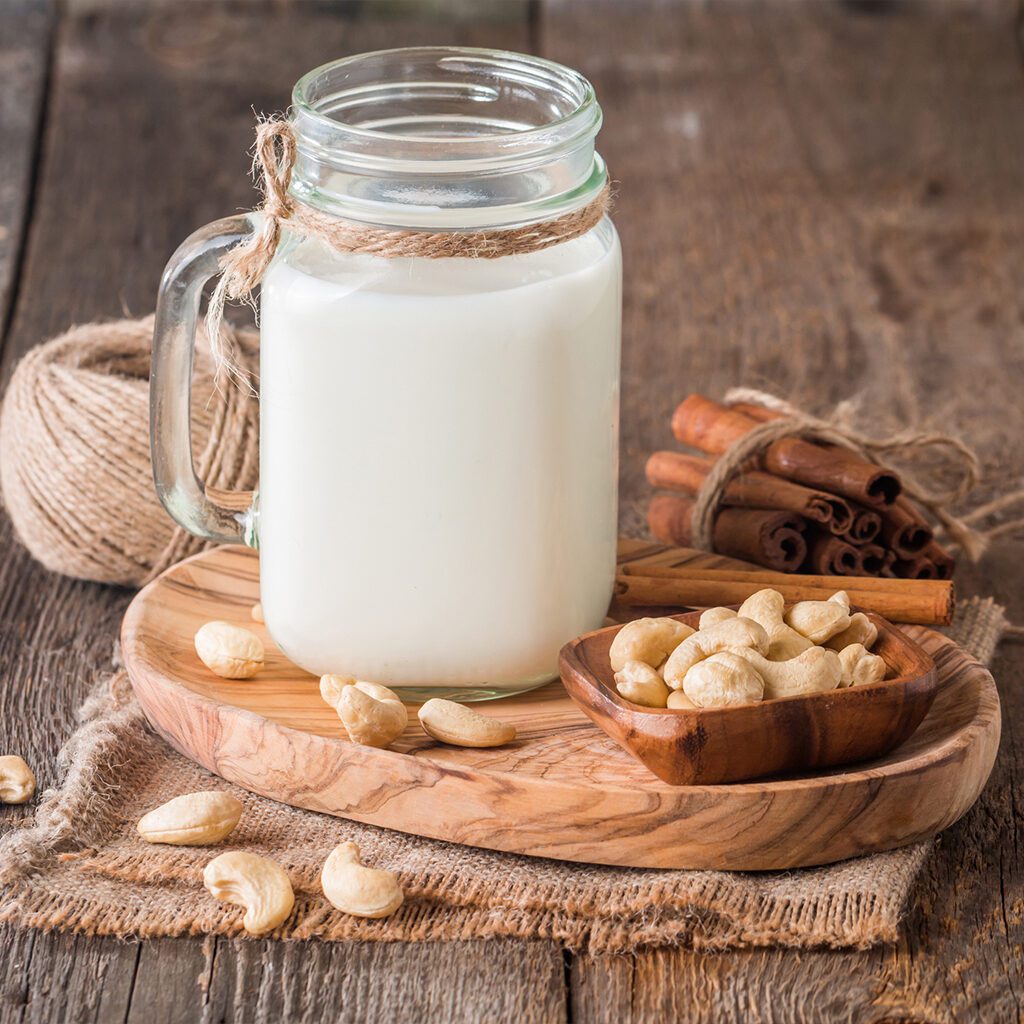Types of Milk for Every Diet
There are tons of choices when it comes to drinking your calcium – milk can come from animals, seeds, grains, or nuts. And understanding these options can help you pick the best carton for your personal requirements. Take a look at what these eight different types have to offer.







Cow's Milk
This dairy option comes in a variety of densities. They all contain the same nutrients and vitamins. All cow’s milk is rich in calcium, vitamin D, potassium, and protein. The main differences are calorie and fat content and flavor. Skim milk is only 90 calories per cup, making it a great option for those watching their weight. Gradually increasing in caloric content, 1-2% milks get slightly richer in flavor. And whole milk can contain anywhere from 125-156 calories per cup, but it’s rich and creamy and great for babies and toddlers, who require more fat for their developing brains.
Lactose-Free Milk
For people whose bodies struggle to digest lactose, this treated milk is a wonderful option. It contains the same nutritional value as regular milk, but will taste slightly sweeter because an added enzyme (lactase) breaks the lactose down into simple sugars.
Soy Milk
A nutritional treasure trove, this is a great option for lactose intolerant people, those with a dairy allergy, or vegans. Each serving contains approximately six grams of protein, six grams of carbs, and 450 mg of calcium. Look for calcium-fortified options and avoid flavored varieties as they will contain more sugars.
Almond Milk
Made by soaking and grinding almonds, then combining with filtered water, this option comes in at under 30 calories per cup and packs in 450 mg of calcium. It’s a great alternative to soy milk and is appropriate for anyone watching their sugar intake.
Rice Milk
Free of nuts and soy, rice milk is wonderful for people concerned about allergies. Made from water and ground brown rice, the only downsides are that it is slightly higher in carbohydrates (coming from a grain), and it contains little to no protein.
Coconut Milk
Delicious and drinkable, one cup contains about 45 calories and around four grams of saturated fat. Just don’t grab the canned kind on the ethnic food aisle – this is a non-dairy equivalent to heavy cream used for cooking. Look for the “coconut milk beverage” in the cold section, which has been watered down to create a healthier drink.
Flax Seed Milk
Cold-pressed flax seed oil and filtered water make up this simple and newer option. It has around 25 calories per cup, as long as you buy the unsweetened kind. But it also packs in nearly 1,200 mg of fatty acid rich omega-3s – which are great for heart health!
Cashew Milk
With a similar texture to whole milk and fewer calories than skim, cashew milk is an intriguing option for taste. Unsweetened and fortified cashew milk boasts only 25 calories per cup, no sugar, and nearly 50% more calcium than cow’s milk!

